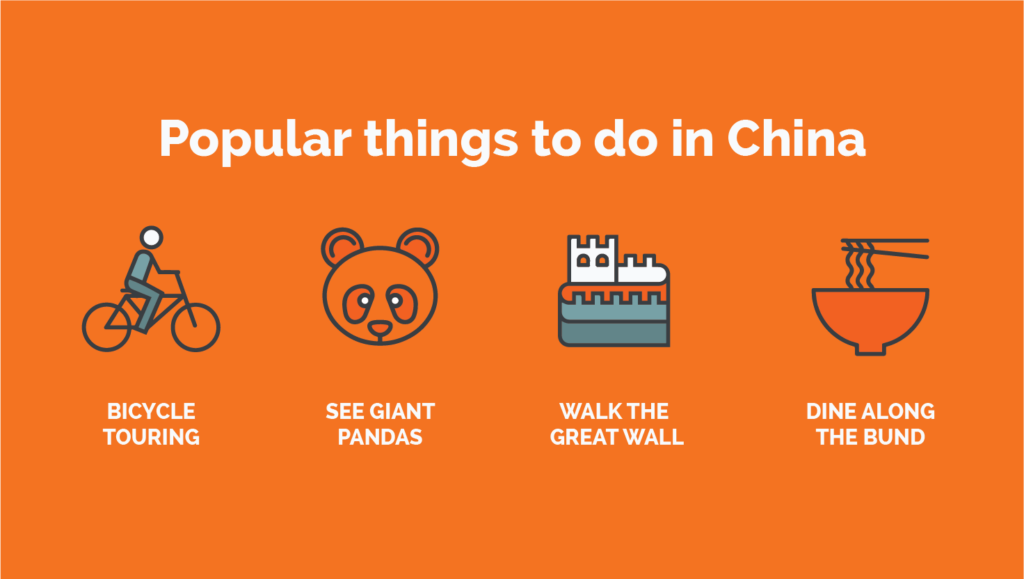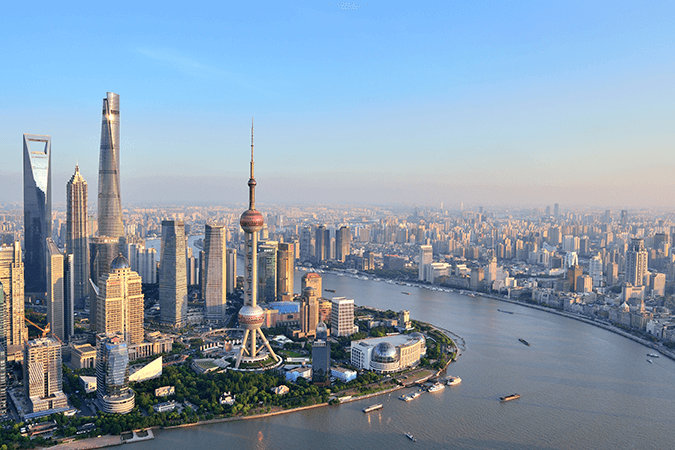Travel Insurance For China
Travel Insurance For China
*iSelect does not compare all travel insurers or policies in the market and not all policies or special offers are available at all times or in all areas. We currently only provide a comparison service online. Not all policies available from our providers are compared by iSelect and due to commercial arrangements and customer circumstances, not all policies compared by iSelect are available to all customers. Learn more.
Easily compare Travel Insurance
Save time and effort by comparing a range of travel insurance policies with iSelect*
What to do in China and how to make sure you’re covered
Potential problems in China
What your travel insurance could cover
It’s a massive country, with every kind of geographic and cultural experience you could ask for. From sweeping, untamed wildernesses with ancient temples and architecture, to ultra-modern, densely populated cities. That said, many parts of China aren’t as modernised as Australia, so it’s beneficial to have suitable travel insurance.
What to do in China and how to make sure you’re covered
As one of the world’s biggest countries and oldest cultures, China is a travel experience like no other. Here’s just a few ideas to plan your trip:
- Walk the Great Wall: Visible from space, the Great Wall of China is one of the most impressive built structures on the planet. But depending on the section you walk, it can also be steep and run down, with a potential risk for slips and sprains. Travel insurance could provide cover if you do get injured, you don’t need to worry about bill shock on top of your physical wounds.
- See giant pandas: Who doesn’t love cute pandas? These beautiful animals are endangered due to habitat destruction, so panda conservation centres play an important role in species preservation. Visitors to panda conservation centres can help to care for the animals, but it’s vital to remember that these are still animals and can react unpredictably.
- Dine along the Bund: Shanghai’s bustling Bund forefront features some of the world’s most impressive restaurants and is visually spectacular at night. However, it’s important to remain aware of your surroundings and be vigilant about the threat of pickpockets and other petty crime.
- Bicycle touring: China is one of the world’s great bicycling nations, but roads can be dangerous!2https://smartraveller.gov.au/countries/asia/north/pages/china.aspx#local_travel Always wear a helmet and be aware of other vehicles, as drivers can often be unpredictable. If you choose to ride a motorbike or moped, make sure you hold a valid license and check that your insurance policy provides cover for this activity.
- Cruise the Yangtze River: One of the world’s great rivers, a Yangtze River cruise can give you the chance to get a different perspective on China. Travellers should take care to stay on the boat, as the water is highly polluted and is not safe for swimming.
- Explore the regional areas: Many travellers to China don’t get beyond the big cities of Beijing and Shanghai in this huge country. But there’s lots of other cities to explore. Travellers to the less popular tourist destinations should be aware of mosquito-borne illnesses like malaria and Japanese Encephalitis2. See your doctor before you travel for the appropriate preventative strategies.

Potential problems in China
Petty crime in China is rare, especially against tourists and foreigners. But there are a few pickpockets,3https://smartraveller.gov.au/countries/asia/north/pages/china.aspx#local_travel especially in crowded tourist hotspots and restaurants. The biggest danger to tourists (and natives) is the traffic,4https://smartraveller.gov.au/countries/asia/north/pages/china.aspx#local_travel as roads are crowded and drivers don’t always have the same respect for road rules as we do.
What your travel insurance could cover
Medical problems
No matter how healthy you are, travel insurance is essential as illness can strike at any time. A suitable travel insurance policy could cover ambulance transportation, repatriation flights, medical and hospital costs, dental treatment, and also in-hospital cash.
Personal liability
If you injure someone or damage property while you’re in China, then this could provide cover. On that note, we highly suggest refraining from the temptation to bring a piece of the Great Wall back with you.
Cancellation fees and lost deposits
If you have to cancel or rearrange your trip, or part of it, then you may lose your deposits or incur a cancellation fee. This cover can reimburse you. China’s airlines are very prone to delays, so you should be prepared for disruption at some point. This is where your travel insurance may come in handy.
Delayed, stolen, or lost luggage or possessions
If you’re left without luggage or other possessions then your insurance can reimburse you for the cost of replacing them. Your policy could also cover you for lost passports and travel documents.

Disrupted travel
If your travel plans are disrupted by unforeseen circumstances then a travel policy could help cover the cost of reimbursing you for the cost of extra meals and accommodation while you wait.
Rental vehicle excess
If you rent a car and have an accident, your policy could cover you for your rental provider’s excess payment.
Want to compare travel insurance before your trip to China?
Having a travel insurance policy is beneficial for enjoying peace of mind on your trip. Compare policies online today with iSelect and select the one which suits you.

.svg)




